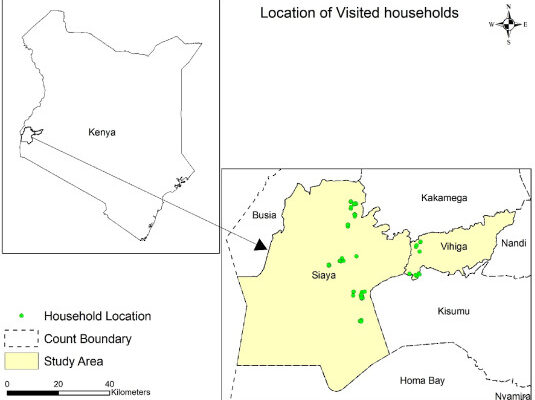Climate change and land degradation adversely affect food security in sub-Saharan Africa (SSA). Smallholder farmers are the most affected. Therefore, it is imperative to identify technologies that boost resilience to climate change, and restore lands. Push-pull technology is among proposed solutions. This technology controls stem borers, fall armyworm, striga, mycotoxins; improves availability of nitrogen and phosphorus, and stores increased carbon in biomass and soils. Though much has been published about push-pull technology, there is a lean in publications about how this technology can help smallholder farmers to cope with climate change and variability. Here, we present perceptions of adopters of push-pull technology in western Kenya with regard to climate change and land degradation, and discuss reasons it should be adopted widely. We compared push-pull and other maize-based cropping systems in western Kenya, through interviews. Push-pull technology produces 0.3–1.1 t more maize ha−1 compared to maize-bean intercrop, and maize monocrop when the season is drier than normal. Additionally, push-pull provides 3.6–9.8 t more fodder during drought-stricken seasons. Push-pull technology covers 70% of the soil surface compared to 20% cover found in maize-bean intercrop and maize monocrop. In push-pull farms, 150–280 kg nitrogen, 13–24 kg phosphorus and 370–470 kg potassium can be recycled through biomass and this is five times greater than the potential for maize-bean intercrop and maize monocrop. There is need for wide adoption of push-pull technology to increase resilience of farmers to climate change and restore degraded lands.
Authors: Pierre Celestin Ndayisaba, Shem Kuyah, Charles Aura Odhiambo Midega, Peter Njoroge Mwangi & Zeyaur Rahman Khan
Contact address: pierrecelestin.ndayisaba@rab.gov.rw
Institution: Rwanda Agriculture and Animal Resources Development Board, Huye, Rwanda
Twitter name of the institution: @RwandaAgriBoard
Twitter link: https://twitter.com/RwandaAgriBoard
Available downloads:


